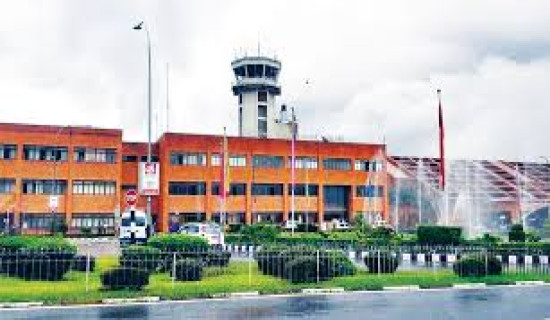- Saturday, 28 February 2026
Need To Reform Nepali Bureaucracy
Nepal has practised democratic polity for several decades now where politics and bureaucracy are assumed to exercise their differentiated roles and authority. Politicians are assumed to make policies and set legislative agenda whereas administrative personnel are employed for implementation of the policies and development. Civil servants are generally subordinate to politicians and they are expected to be pliant, compatible and non-resistant to the political executives and ministers. Furthermore, bureaucracy is often humbled at the hand of ministers and political masters. Bureaucracy also behaves and acts in such a way as to make itself liable to be castigated as responsible for failure of government policies and programmes.
Prime ministers and ministers are found issuing instructions and directives almost on a regular basis to the administrators and bureaucrats on the assumption that the latter are alone responsible for carrying out their commands and fixing the problems that have resulted from different reasons. New Prime Minister Pushpa Kamal Dahal Prachanda has made a routine to engage with high-level bureaucrats and issue directives on several subjects. He is, time and again, heard of exhorting the bureaucracy to extend cooperation in realising the vision of good governance and development.
Inertia
Likewise, lawmakers in the parliament do complain of bureaucratic inertia and are reported to have made pronouncements against bureaucracy passing blame on them for failing to act in line with the political change and transformation in the country. In fact, bureaucracy is in the state of flux. It has been placed in an ad hoc and transient form from legal and institutional point of view especially in the absence of the federal civil service law. The draft of the federal civil service law has been under consideration for almost five years at different levels, including parliament, due to one or the other reasons. The new government needs to take up it again and shepherd it along the process in ensuring its passage from parliament through necessary revisions and reforms. It is not yet clear when the new coalition government will act for it.
When we talk of the character of the Nepali bureaucracy, it has been assessed as a ritualistic and traditional institution. The current model of bureaucracy is more or less akin to India’s bureaucratic milieu patterned along the line designed by the British colonial administrators. The Indian Public Service has been structured on the British pattern of division of services into the higher administration class and other subordinate technical services. The origin of such division can be traced to the articulation in the famous Macaulay Report on the Indian Civil Service 1854 in colonial India. However, with the growth in the functions of government following the Independence of India in 1947, some alterations have been made. But fundamental basis and character has not been changed very much.
The problem arises with respect to defining generalists and specialists in civil bureaucracy. A generalist may be defined as a public servant who does not have a specialised background. He or she is easily transferable to any department or branch of government. He or she has also been defined as a civil servant, who belongs to the managerial class and who is well up in rules, regulations and procedure of administration. On the other hand, specialist is meant a person who has special knowledge or skill in a specific field, for example, agriculture, engineering and so on.
In the Nepali bureaucracy, dominance and precedence of the generalist exists and civil servants are transferred to different government departments without considering their merit, background and competence assuming that they can handle their tasks due to their generalist background. Though different service categories are established and recruited accordingly, this does not make any difference since generalists are placed hapahazardly at the commanding helm of the affairs. This in in disregard to technocratic merit that is required in tackling current national challenges and complexities.
Another very fundamental aspect of the Nepali bureaucracy is its permanent tenure ensured through career progression in bureaucratic hierarchic order. Once a civil servant is recruited, s/he enjoys permanent tenure. A bureaucrat exits after s/he completes the age limit for compulsory retirement prescribed according to law. The permanent nature of bureaucracy is also said to be one of the causes of the stagnation and immobility in the civil service system. Those enjoying permanent tenure seldom feel threatened. Neither do they feel challenged to update and equip themselves to respond to the contemporary needs and aspiration of the people. Sometimes, ministers and leaders feel helpless for their failure to make bureaucracy work effectively in delivering services to the people.
Pathology
The pathology of Nepal’s bureaucracy is that it is yet to adapt and develop itself into the organisation characterised by legal-rational authority. The legal rational authority encompasses the fundamentals such as defined competence of each office and officials, universalism and impersonal operations, separation of public funds from private use and so on. Conversely, it is more or less based on personalised norms in official behaviour, official corruption and so on. The bureaucracy is beholden to party politics and fragmented along the partisan lines. The civil servant organisations are tied to the factions within the political parties.
Finally, the civil bureaucracy is swallowing the bigger chunk of the national revenue indicated by ever growing size of the recurrent budget in the country. Even then, it has failed miserably to perform according to the expectations of the people. Since the effective implementation of the government policy and programme is dependent upon the competent and meritorious bureaucracy in the federal setup, the new coalition government should make a complete reform in the bureaucracy to ensure that it acts in tune with changes and evolving context of the country.
(The author is presently associated with Policy Research Institute (PRI) as a senior research fellow. rijalmukti@gmail.com)
















